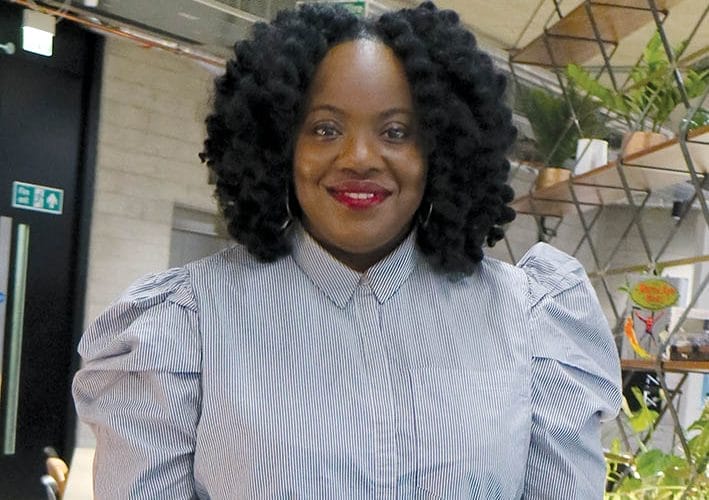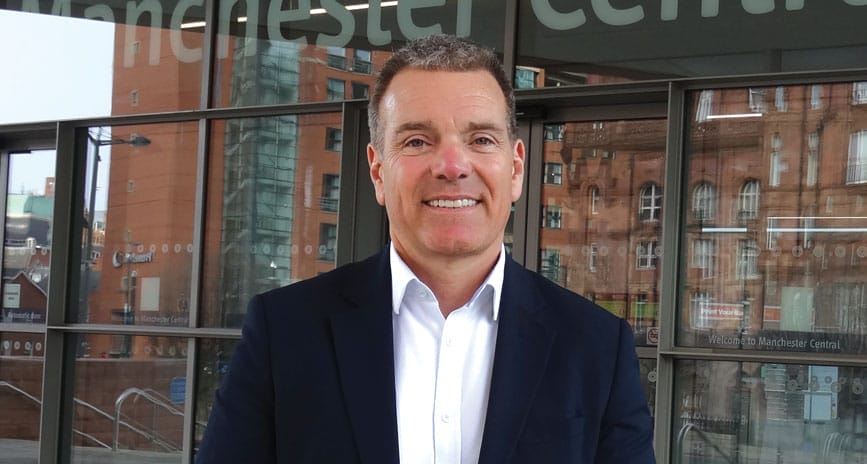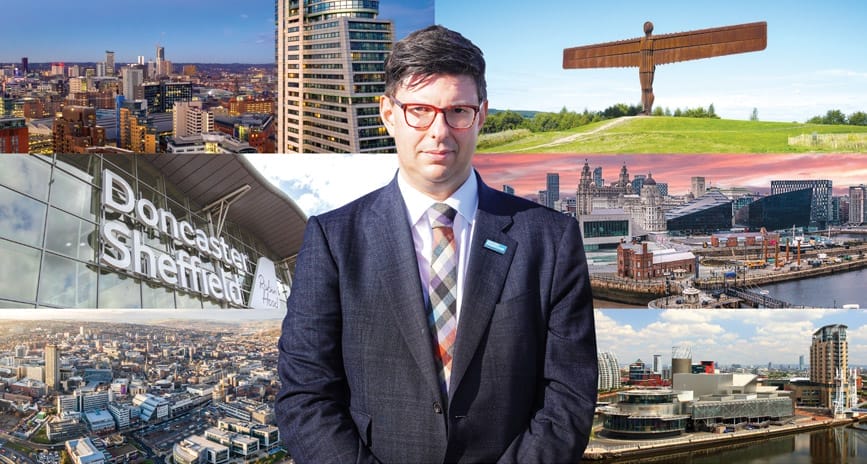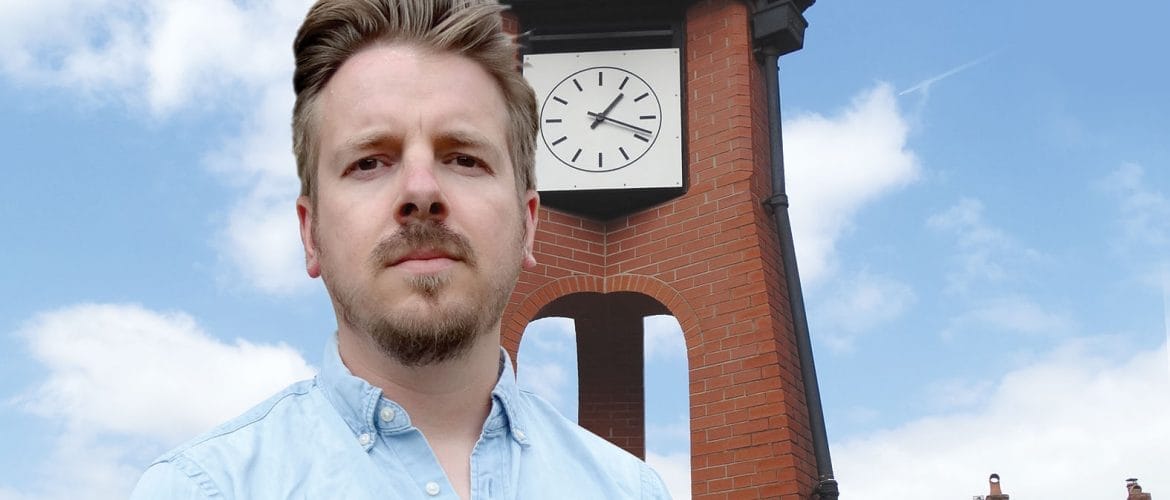GM Business Connect recently met with Sharon Amesu, new Chair of the Greater Manchester branch of the Institute of Directors (IoD). As the largest branch of the organisation in the Northwest, we were keen to see what the Institute meant to business in Greater Manchester and how Sharon was intending to grow the relationship between the IoD and the local business community.
Can you explain what the Institute of Directors organisation is about and how does it benefit the business community?
“The IoD was established in 1903 and we gained our Royal Charter in 1906 to support, represent and set standards for business leaders nationwide. We have a focus on helping directors and leaders ‘be better’. We’re a global membership organisation but principally based in the UK with our headquarters in London and branches in every region. In Greater Manchester we have about 700 members, and across the North West about 2,000. They hail from a range of backgrounds – the private sector, not for profit third sector and public sector.
“The purpose of the organisation is to help passionate directors be more effective. They need to understand what is good governance, for example what the responsibilities are, the liabilities and what is involved in being a director. The IoD comes alongside those leaders to help them understand their duties and expectations, and providing opportunities for Connectivity, Professional Development and Influence.
“We have inspirational and educational events, with speakers and panels that ensure members are informed on various issues that are relevant to their particular sectors or industries. We also have training as well; we run programmes in London and here in Salford that lead to certificates and then diplomas in directorship. I myself have started on the first module – ‘Leadership for Directors’ and it’s incredibly comprehensive helping us to understand strategy and what it means to lead. It helps us get to grips with those fundamental pillars of what it takes to make great leaders in the modern world. The IoD brings different leaders together to support, network, educate and build each other up and inspire. Our regional director, Claire Ebrey, has stated that the events are to be ‘inspirational, educational and/or fun’.
“We don’t simply want to focus on helping to grow a business – as others laudably do – our focus is on the individual leaders. We help and guide you to discover and utilise those central traits of leadership. It’s also about the difference we make in our community as we are part of an eco-system – we don’t just sit in isolation as leaders in our organisations, but it’s actually ‘what are you doing within your broader community?’. Phil Jones MBE, managing director of Brother UK, is one of our members who exemplifies this with the transformational work that Brother are doing in schools and the marginalised communities that surround them. For me this is what the IoD represents – it’s how we as leaders enable our communities through our organisations and businesses.”
Do you have to be a Director to join?
“You have to be in a leadership position – in a business, charity or the public sector. You don’t have to have founded an organisation to join nor be the Chief Executive. Sometimes that can be a misunderstanding and there are many senior people in organisations who are funded and supported by their companies to develop their skills with the IoD.”
You are the chair of IoD Manchester, what does that role involve?
“I was appointed in December, and one of the reasons why I wanted to be involved is because the IoD is a well-established organisation with a long standing reputation giving it gravitas and kudos. I saw it as a real opportunity to make a difference here in Greater Manchester because we are right in the heart of real transformation and change taking place. What we need now more than ever is great leadership, great collaboration and great partnership. I saw that this was an opportunity to be at the ‘helm’, bringing key leaders and players together in the city region and asking the question ‘what can we do to improve the lives of those living and working across the city region?’. For me as chair – I’m a convener, a sign poster, a collaborator, working with senior people to drive upward mobility for all.”
How do you propose to do that?
“Through partnerships.
“We are currently holding discussions with key leaders to establish and understand what is already going on. This very morning we have been identifying how far we can reach to help the agenda of social mobility, diversity and inclusion. In the first instance we could have just set out initiatives, but what was key to me was to establish what is already going on and how we can work alongside those activities. How can we most effectively lean in and lend our support, bridge and fill gaps. A great example is Youth Fed based in Salford Quays who are working with a range of people in marginalised communities and schools. They are developing young people preparing them with digital skills in areas like cyber security so that we can prepare for the skills gap that we have emerging. In the next 2 years we will see a need for 600,000 digitally skilled people in the North West. As Youth Fed are already doing the work to fill this need, we are looking at how we can co-design and co-deliver an event that we can present to our members – sharing that knowledge and awareness. We want to look at how we can build partnerships and opportunities among our members through apprenticeships and so on.
“It’s all about partnerships, listening to what’s going on and leaning in to lend support.”
Who are you working with?
“The approach I’ve taken is this: that collaboration is key (not trying to take everything on myself) and so I built a committee of people with ambassadorial roles. What we have now is our ambassadors working across social mobility, diversity, social inclusion, health and wellbeing, cyber risk, transport and infrastructure – who all are forging new paths and building connections. They are helping develop our approach to where to go next and what to focus on. For example we have recently had a great conversation with Rachel Clacher from ‘We Mind the Gap’ who help disaffected young women providing wrap around care and support so they can find their way back in to work and society.
“We have got real ambitions for plugging the skills gap through unconventional sources. My own background is Law, where I was a criminal barrister for 16 years, and I worked with many disaffected people. From this perspective what is clear to me is that where you have ex-offenders leaving institutions the likelihood of them reoffending is very high. Recidivism and the ‘revolving door’ problem is increased when they don’t have opportunities. Many have skills and many are very capable, so it is all about finding ways to engage with them in a positive and constructive way. To give opportunities to these ex-offenders is great for communities and the economy. We recently ran an event where Darren Burns, head of recruitment from Timpsons, talked to our members about their work with ex-offenders.”
What would you give back to an organisation that becomes an IoD member?
“The power of the network cannot be underestimated. It’s about relationship building, and we have events across the region to bring our members together and keep them informed and ensure they have a voice on issues that are affecting them. We have a regular ‘policy voice’ survey that gives members a voice on national policy issues. In the region, we speak directly to policy makers. Alongside this and the development programmes there is the power of being a member of a ‘family’ of leaders across the region. It’s back to relationship building. We have long-standing high calibre members who have stood by the organisation for many years – that’s further testimony to the strength of membership as they see the value in the relationships they’ve developed.
“We have monthly events focused around education and inspiration in leadership. Recently we had an event on modern slavery which helped members understand what could potentially be going on somewhere in their supply chain, and how they can be kept informed, protecting their people in this process. Another was on B Corps and how we can be more conscious about our engagement with local economies and upholding our desired ethical standards. We also have our Director of the Year Awards ceremony taking place in April. This is a great way for members to come together and be recognised. It creates better visibility for us too on a national and international scale where we can fly the flag of our aims.
“I want to highlight many of the issues that we are seeing now, that ought to have been expected, for example knife crime and gang activity are increasing as a result of lack of investment in to the youth sector. It’s not just about policing – we have to actively engage our young people and it is the third sector that is trying to salvage resources but change needs investment from the government.”
www.iod.com




